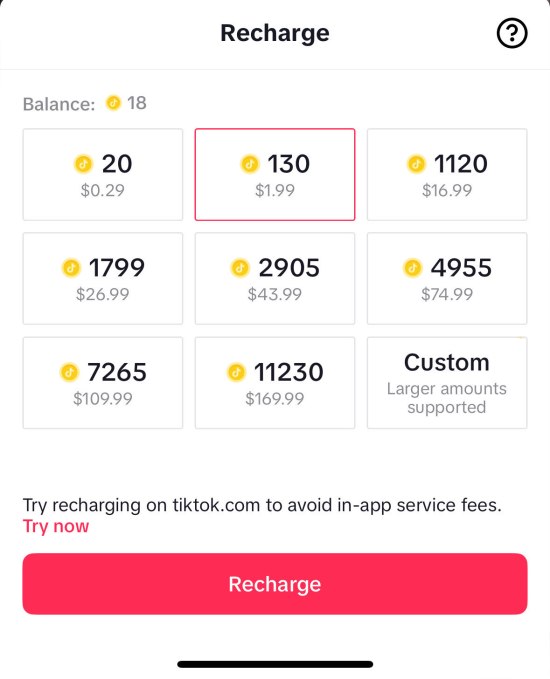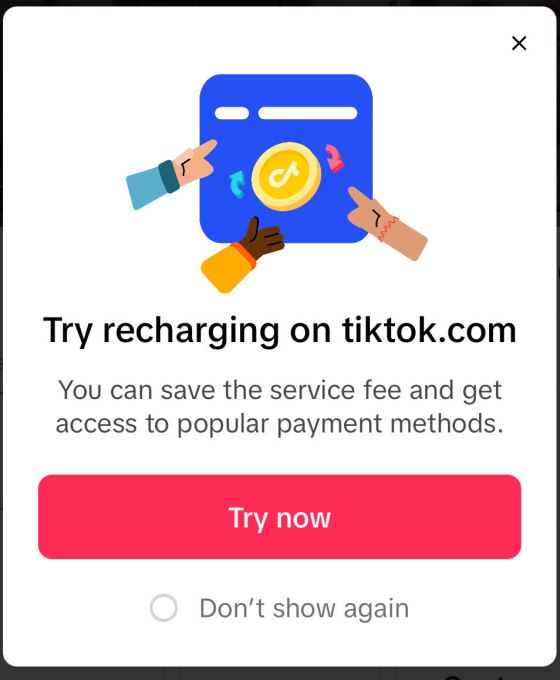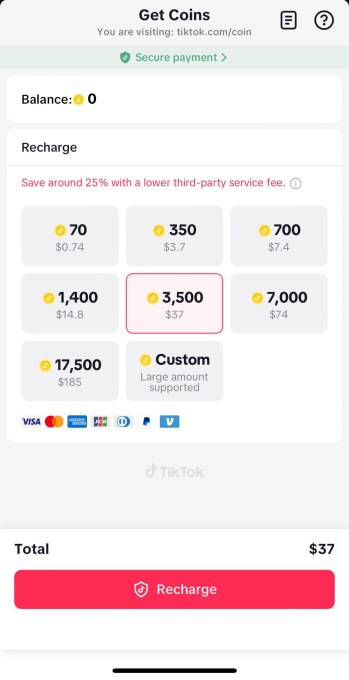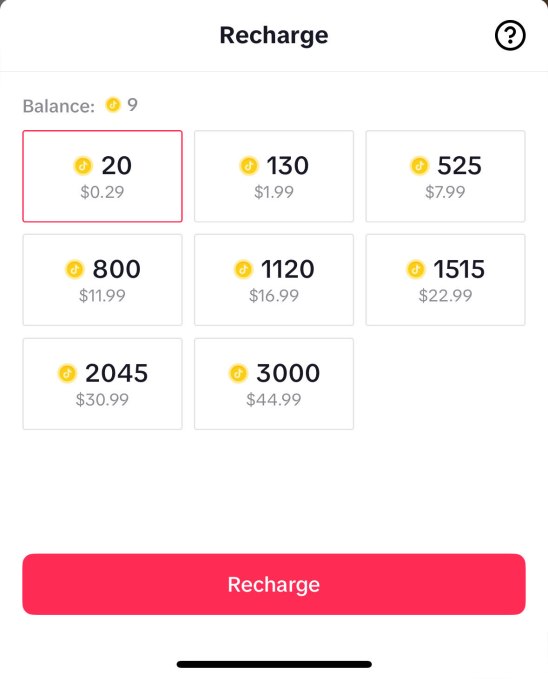ARTICLE AD
TikTok may be routing around the App Store to save money on commissions. According to new findings, the ByteDance-owned social video app is presenting some of its users with a link to a website for purchasing the coins used for tipping digital creators. Typically, these coins are bought via in-app purchase, which requires a 30% commission paid to Apple.
The feature may be hidden from most users, either by design or because it’s only shown to users in a specific group, like testers or high spenders. In any event, those who do have access to the new option are seeing a screen that encourages them to “recharge” — that is, buy more coins — via tiktok.com. Although these screenshots were discovered within the iOS app by TechCrunch tipster, David Tesler, it’s not clear how many TikTok users are seeing them or when or how they’re being shown.
Tesler says the option to purchase via the web was displayed to an account that had previously purchased a large amount of coins.

Image Credits: Screenshot from TikTok app
In some cases, users are shown a screen that includes a message such as “Try recharging on tiktok.com to avoid in-app service fees” followed by a “Try now” link. Other times, they may get a pop-up that says “Try recharging on tiktok.com” with another message about the potential savings. This one reads, “You can save the service fee and get access to popular payment methods,” and is followed by a big, red “Try now” button or a less prominent option that says “Don’t show again.”

Image Credits: Screenshot from TikTok app
Users who follow the provided link are taken to the website for buying coins: tiktok.com/coin. From this web view, they can pay using a variety of methods, including Apple Pay or debit or credit cards. The website reminds users that purchases made directly with TikTok will save them around 25% “with a lower third-party service fee.”
On the web, users can purchase packs of coins ranging from 70 coins to 17,500 coins, or even enter a custom (higher) amount. Inside the app, however, coin packs are available starting at 20 coins up to 16,500 with no option for a custom amount.

Image Credits: Screenshot from TikTok app
That could suggest TikTok is only showing the web links to those users who typically buy larger packs of coins at one time.
While Apple did begin to allow developers of select apps to add links to their websites from inside the app back in 2022, the use case was limited. The only apps that qualify to offer these lines for “account management” are what Apple calls “reader” apps — or those apps that provide access to paid digital content as their main functionality. (Think: Netflix, not Facebook.) In addition, apps that choose to use the External Link Entitlement cannot offer in-app purchases via the App Store as well. It’s an either/or situation.

Typical IAP flow. Image Credits: Screenshot from TikTok iOS app
Given that TikTok is also offering most of its users the option to buy via in-app purchases, it seems it’s not abiding by the External Link Entitlement rules even if it had been granted the exception (which would be surprising.)
TikTok and Apple have not returned requests for comment at this time.
Tesler noted that when Fortnite inserted an option that routed users around Apple’s in-app purchases, ahead of filing its antitrust lawsuit against the company, Apple banned the app from the App Store. It’s unclear what, if any, action Apple will take against TikTok now, given the current politics around the Beijing-based app.
In 2020, Fortnite was removed from the app store for a similar interface in which they presented users with an option to bypass apple in-app purchases pic.twitter.com/LLcilXEUQb
— David Tesler (@getdavenow) April 30, 2024
TikTok’s current U.S. fate is uncertain, as a bill to ban the app has now been signed into law by President Biden. However, the company said it plans to fight the ban in court, as it did before under President Trump. Biden had originally put the effort to ban the app on hold until a new bipartisan bill passed both the House and Senate.

 8 months ago
45
8 months ago
45 

